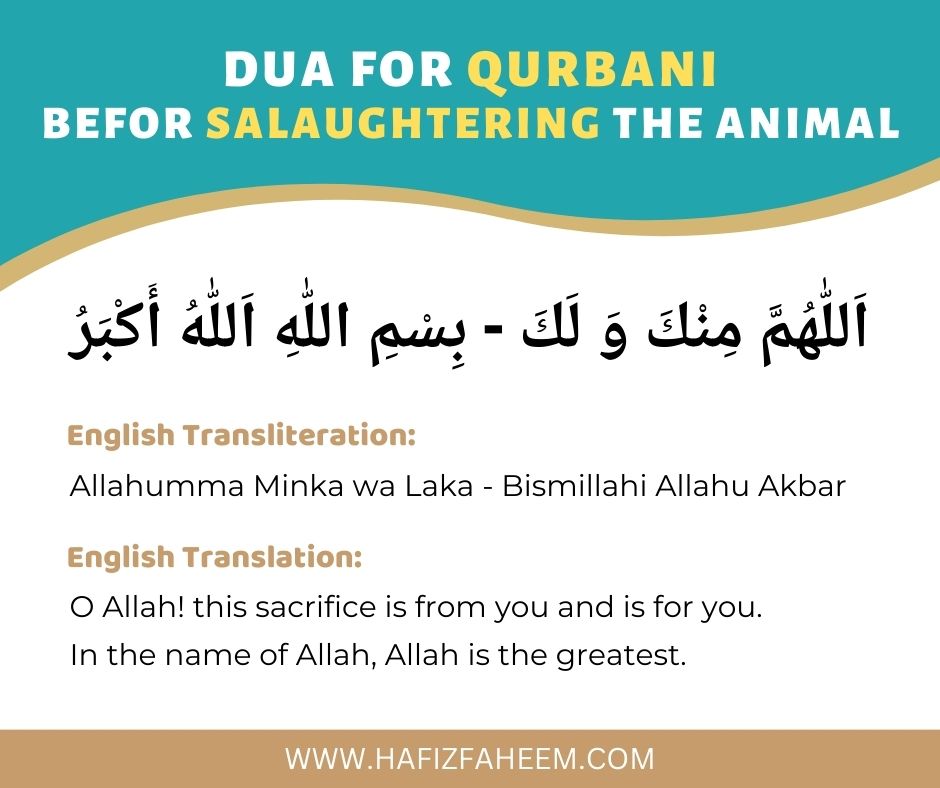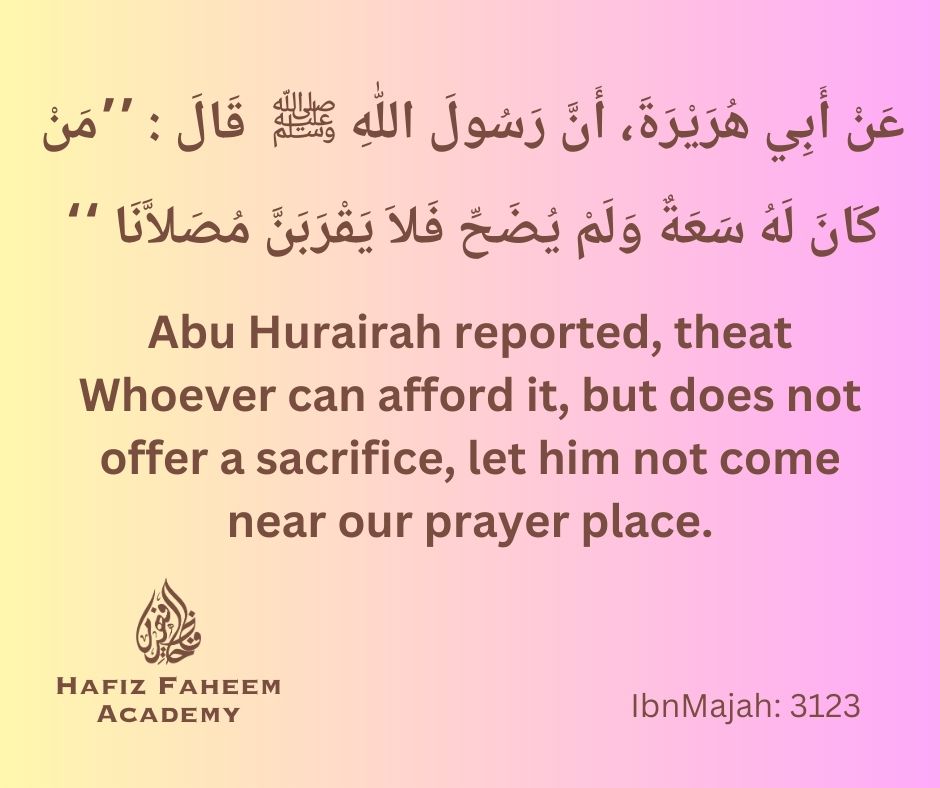
Dua for Qurbani - All Duas before and after Sacrifice, Udhiya
In this blog post, you will discover the supplications – Duas for Qurbani, Sacrifice, or Udhiya. Hadiths mentioned 3 kinds of Duas related to Qurbani:
- Dua after bringing Down the sacrificial animal and facing the Qiblah.
- Dua Before Qurbani – before Slaughtering the animal
- Dua After Qurbani – after Slaughtering the animal
To make it easy for you, I have included audio for each Dua. This allows you to listen, practice, and ensure that your Qurbani aligns closely with the Sunnah.
Please note that these Duas are not mandetory to recite. It is preferable to recite the following Duas during the time of slaughter. However, If someone chooses to simply say “Bismillah Allahu Akbar” during the sacrifice, the animal will still be considered Halal, and the sacrifice will be valid. So let’s start in learning and reciting Qurbani Duas.
Dua after bringing down the sacrificial animal and facing the qiblah

Dua Before Qurbani - Dua before salughtering the animal

Dua after Qurbani - after slaughtering the animal

Would you like to know about virtues of Qurbani? visit this page
Explanation of Qurbani Dua
إِنِّي وَجَّهْتُ وَجْهِيَ لِلَّذِي فَطَرَ السَّمَاوَاتِ وَالْأَرْضَ
“I have turned my face toward He who created the heavens and the earth” signifying that I have directed and devoted my worship to the Creator of the heavens and the earth, who initiated their creation without any precedent.
حَنِيفًا
In this devotion, I adhere to the path of Hanif, firmly rejecting polytheism. The term Hanif denotes a follower of the religion of Abraham, that is, Islam. Elaborating on the concept of Hanif, it signifies that I do not partake in the beliefs and practices of polytheism.
وَّمَا أَنَا مِنَ الْمُشْرِكِينَ
“And I am not of the polytheists,”
further elucidates the term Hanif. It means that I disassociate myself from idol worship, as well as the customs of Jews, Christians, Magians, and others. The term polytheist specifically encompasses those who venerate idols, including Jews and Christians.
صَلَاتِي
Salatee; Salat is a comprehensive name for recitation, prostration, prostration, supplication, and Tashahhud.
نُسُكِي
Nusuki; “Nishik” is the act of worship, and in Arabic, Naseekah refers to something that brings closeness to Allah. So, It refers to the sacrifice that brings closeness to Allah Ta’ala.
وَمَحْيَايَ وَمَمَاتِي
Furthermore, my life and my death are for Allah. He is not only the creator and decreer of both but also their ultimate owner and exclusive controller. So we should obey Him.
لِلَّهِ رَبِّ الْعَالَمِينَ
Moreover, what I worship throughout my life and what I sacrifice my life for are solely dedicated to Allah, the “Lord of the Worlds.” He is not only their ultimate owner but also their reformer and administrator.
لَا شَرِیْکَ لَہ وَبِذٰلِکَ اُمِرْتُ
Additionally, it is important to note that He has no partner in His dominion. And I am instructed to wholeheartedly adopt this belief in one God, known as monotheism, with complete sincerity in both my words and my beliefs.
وَاَنا اَوَّلُ الْمُسْلِمِیْنَ
Moreover, I am proud to be one of the Muslims who wholeheartedly surrender to God’s command. So, I willingly submit to Him, follow His guidance, and acknowledge all these remarkable attributes of God. Glory be to Him.
Hadith about sagnificance of offering a sacrifice
Abu Hurairahؓ reported that "Whoever can afford it, but does not offer a sacrifice, let him not come near our prayer place." ٰIbn-Majah:3123


